Department of Islamic Studies Introduce
For students and families across Punjab, particularly those in and around Rawalpindi, who seek a deep and holistic understanding of Islamic knowledge, the Department of Islamic Studies stands as a significant and accessible academic destination. In a society that deeply values religious education alongside modern disciplines, institutions dedicated to Islamic studies play a crucial role in nurturing intellectual and spiritual growth. The Department of Islamic Studies, located in Rawalpindi, offers a dedicated environment for delving into the rich tapestry of Islamic sciences, making it an excellent choice for individuals passionate about faith, history, and contemporary Islamic thought. This article aims to provide a clear, engaging, and informative overview of this important academic department, detailing its strategic location, the comprehensive programs and services it offers, its distinguishing features, and why it is particularly well-suited for local users in the Punjab region.
The pursuit of Islamic studies is a noble endeavor, providing insights into the Quran, Hadith, Fiqh (Islamic jurisprudence), Islamic history, and the profound wisdom that guides billions worldwide. In Punjab, with its vibrant cultural and religious heritage, there is a consistent demand for high-quality education in these areas. The Department of Islamic Studies addresses this need by offering structured programs that cater to various academic levels, from undergraduate to postgraduate studies. Its presence in Rawalpindi means that aspiring scholars and students of faith have a readily available avenue to deepen their knowledge without needing to travel far from their homes in Punjab.
Often part of a larger university, a dedicated Department of Islamic Studies signifies a robust commitment to fostering scholarship in religious sciences. This focus allows for specialized faculty, comprehensive curricula, and an environment conducive to intellectual inquiry and spiritual reflection. Students can expect to engage with fundamental sources of Islam, analyze contemporary issues through an Islamic lens, and develop critical thinking skills essential for navigating the complexities of the modern world.
This overview will explore various facets of the Department of Islamic Studies, including its precise address in Rawalpindi's I-14/3 sector and its accessibility for students across Punjab. We will delve into the types of academic programs and student support services one can expect from such a department, highlight its unique features, discuss potential promotions or scholarships that might be available, and provide essential contact information. Our aim is to offer a factual yet engaging portrait of this significant academic department, enabling local users to make informed decisions about their higher education journey in Islamic studies.
Ultimately, for the community in Punjab, having a specialized Department of Islamic Studies within reach is a valuable asset. It provides a pathway for individuals to contribute meaningfully to society, whether as religious scholars, educators, researchers, or informed citizens who embody Islamic principles in their professional and personal lives.
The Department of Islamic Studies is located at JX8C+7P6, I-14/3 I-14, Rawalpindi, 46000, Pakistan. This address places it within the I-14 sector of Rawalpindi, a city that is not only a major urban center in Punjab but also a twin city to the capital, Islamabad. This strategic location offers excellent accessibility for students residing across various parts of Punjab, particularly those in and around the Rawalpindi-Islamabad metropolitan area.
The I-14 sector is a developed area, implying good infrastructure and connectivity. Being located within Rawalpindi means the department is well-serviced by a comprehensive public transportation network. Students can utilize various options, including local buses, vans, and ride-sharing services (such as Careem and Uber), to commute to the university. The availability of diverse transport choices makes daily attendance for classes, lectures, and library access convenient and cost-effective for students coming from different neighborhoods of Rawalpindi and even from nearby cities and towns within Punjab.
For those commuting from other major cities in Punjab, such as Lahore, Multan, or Faisalabad, Rawalpindi is well-connected via national highways and motorways, as well as an extensive inter-city bus network and railway system. Upon reaching Rawalpindi, local transport would then be readily available to reach the I-14/3 sector. The 46000 postal code further specifies the precise area, aiding in navigation. The sector-based planning of Islamabad and Rawalpindi ensures that the area around the department likely has access to essential amenities like food outlets, stationery shops, and residential options, contributing to a comfortable student life. This balance of urban accessibility and a dedicated academic environment makes the Department of Islamic Studies an attractive option for students across Punjab.
As a Department of Islamic Studies, typically part of a larger university, it offers specialized academic programs and support services to its students. Based on common practices for such departments (e.g., those at Riphah International University or International Islamic University Islamabad), the following services are generally provided:
-
Academic Programs:
- Undergraduate Programs: A Bachelor of Science (BS) in Islamic Studies, often a 4-year degree program (8 semesters), covering core Islamic sciences.
- Postgraduate Programs: Master of Philosophy (MPhil) in Islamic Studies (2-year program) and potentially Doctor of Philosophy (PhD) in Islamic Studies (3-8 years program), for advanced research and scholarship.
- Bridging Programs: Sometimes, specialized bridging programs (e.g., 2.5-year BS Islamic Studies) for students with relevant prior qualifications.
-
Comprehensive Curriculum: Courses cover a wide range of Islamic sciences, including:
- Al-Qur'an (Tafsir, Uloom ul Quran, Tajweed, Textual Study)
- Al-Hadith (Uloom ul Hadith, Textual Study)
- Al-Fiqh (Islamic Jurisprudence, History of Fiqh, Fiqh-ul-Ibadat, Criminal Law of Islam, Muslim Family Laws)
- Seerah of the Prophet (PBUH)
- Islamic History, Culture, and Civilization
- Arabic Language
- Methodology of Research in Islamic Studies
- Economic Concepts in Quran & Sunnah
- Dawah wal Irshad (Islamic دعوت و ارشاد - Invitation and Guidance)
- World Religions, Mysticism in Islamic Tradition, State and Government in Islam
- Qualified Faculty: The department is typically equipped with highly qualified and experienced faculty members, often PhD holders with diverse specializations within Islamic Studies, dedicated to delivering in-depth knowledge and fostering critical thinking.
- Research Opportunities: Students, particularly at the MPhil and PhD levels, are engaged in rigorous research, contributing to Islamic thought and addressing contemporary challenges through an Islamic lens. Some departments publish research journals (e.g., "Al-WIFAQ").
- Library and Digital Resources: Access to a well-stocked library with physical and electronic resources relevant to Islamic studies, including scholarly journals and databases.
- Conducive Learning Environment: A supportive and inspiring atmosphere designed for the study of Islamic teachings, promoting academic excellence and spiritual development.
- Student Support: Services like academic advising, career counseling (relevant to Islamic studies graduates, e.g., teaching, research, Da'wah), and potentially extracurricular activities that promote a holistic personality.
- Modern Pedagogical Techniques: Application of innovative teaching strategies, experiential learning, and motivational techniques to effectively deliver Islamic knowledge and develop academic, innovative, interpersonal, problem-solving, and management skills.
The Department of Islamic Studies offers several distinctive features and highlights that make it a compelling choice for students in Punjab interested in religious education:
- Specialized and In-Depth Islamic Knowledge: The primary highlight is its focused and comprehensive approach to Islamic sciences. Students gain deep understanding of primary sources (Quran, Hadith) and various disciplines like Fiqh, History, and Arabic, preparing them for specialized roles in Islamic scholarship and practice.
- Modern Curriculum Integration: While rooted in traditional Islamic knowledge, the curriculum is often designed to address contemporary issues, fostering critical thinking and problem-solving skills relevant to the 21st century. This prepares students to bridge Islamic teachings with modern societal challenges.
- Experienced and Diverse Faculty: The presence of qualified faculty, often PhD holders with varied specializations, is a key feature. This ensures that students receive instruction from experts who can provide both theoretical understanding and practical insights into Islamic thought.
- Pathway to Higher Studies and Research: Offering BS, MPhil, and potentially PhD programs, the department provides a clear academic progression for students aspiring to become religious scholars, researchers, or academics in Islamic studies. The emphasis on research methodology is particularly valuable.
- Holistic Personality Development: The department often aims to develop a holistic personality in students through research, education, and training programs that encourage tolerance, forbearance, and responsible citizenship, aligning with core Islamic values.
- Strategic Location in Rawalpindi: Its accessibility in Rawalpindi's I-14/3 sector makes it convenient for students from across Punjab, particularly the northern and central regions. This reduces barriers to accessing specialized religious education.
- Focus on Dawah and Community Service: The curriculum may include aspects of Da'wah (inviting to Islam) and community engagement, preparing students to contribute positively to social reform and development, reflecting the practical application of Islamic teachings.
As an academic department within a university, the "promotions" or "special offers" from the Department of Islamic Studies are typically in the form of scholarships, financial aid, or unique academic opportunities rather than commercial discounts. These are usually designed to encourage meritorious students and support those with financial needs. While specific offers from this particular department are not publicly detailed, common types of support available at universities in Pakistan, which this department would likely be part of, include:
- Merit-Based Scholarships: Awards for students who demonstrate exceptional academic performance in their previous qualifications or during their studies within the department.
- Need-Based Scholarships/Financial Aid: Support for students who demonstrate genuine financial need, making education accessible to a wider range of socio-economic backgrounds. Examples include the Ehsaas Undergraduate Scholarship Program, Punjab Educational Endowment Fund (PEEF) scholarships (especially for students with Punjab domicile), and scholarships from organizations like Diya Pakistan, Khubaib Foundation, or Bait-ul-Maal.
- HEC-Funded Scholarships: Scholarships provided by the Higher Education Commission (HEC) for various levels of study, including indigenous PhD fellowships.
- University-Specific Scholarships: The broader university to which the department belongs might offer its own scholarships, which students of Islamic Studies would be eligible for.
- Teaching/Research Assistantships: Opportunities for postgraduate students to work as teaching or research assistants, often providing a stipend or tuition fee waiver.
- Loan Schemes: Interest-free loan schemes from benevolent trusts or organizations (like Ihsan Trust) that support students' educational expenses.
- Special Quota Scholarships: Scholarships allocated for specific categories, such as students from Balochistan, erstwhile FATA, Gilgit-Baltistan, or those with disabilities.
Prospective students are strongly encouraged to visit the official website of the university that houses the Department of Islamic Studies or contact its admissions and financial aid offices directly. This is the most reliable way to obtain accurate and up-to-date information on available scholarships, financial assistance programs, and the application process.
For individuals in Punjab interested in pursuing higher education at the Department of Islamic Studies, including inquiries about admissions, program details, or any other information, please use the following contact details:
- Address: JX8C+7P6, I-14/3 I-14, Rawalpindi, 46000, Pakistan
- Phone: (Specific phone number for this department is not publicly available and cannot be invented. Please refer to the official website of the university this department belongs to, or a comprehensive university directory for the most accurate contact information.)
When making inquiries, it is highly recommended to be prepared with specific questions regarding the eligibility criteria for various programs (BS, MPhil, PhD), admission deadlines, required documents, the detailed scheme of studies, and information on faculty specializations. Direct communication with the admissions office or the department itself will ensure you receive the most precise and current information to guide your academic decisions.
For the residents of Punjab, particularly those in Rawalpindi and its surrounding areas, the Department of Islamic Studies presents an exceptionally suitable and valuable academic pathway for higher education. Its specialized focus, strategic location, and comprehensive curriculum cater directly to the aspirations of individuals seeking a profound understanding of Islamic knowledge and its contemporary relevance.
Firstly, its location in Rawalpindi (I-14/3) makes it highly accessible for students across Punjab. The well-connected road networks, public transport systems, and the city's proximity to various towns and cities within the province mean that commuting to the department is convenient and manageable. This accessibility ensures that aspiring scholars do not have to relocate far from their homes and families, a significant advantage for many students in Pakistan.
Secondly, the department's dedicated focus on Islamic Studies provides a unique and in-depth learning experience. Unlike general university departments that might offer limited courses, this department delves into the core Islamic sciences—Quran, Hadith, Fiqh, Islamic history, and Arabic language—with a depth that is crucial for true scholarship. For locals who prioritize a strong religious foundation and a nuanced understanding of their faith, this specialization is invaluable. The curriculum is also designed to equip students with critical thinking and research skills, enabling them to address modern challenges from an Islamic perspective, which is highly relevant in today's society.
Furthermore, the availability of various academic programs, from BS to MPhil and potentially PhD, provides a clear progression for students passionate about advanced research and teaching in Islamic studies. This pathway allows local talent to develop into highly qualified scholars and educators who can then contribute back to their communities and institutions across Punjab and beyond. The potential for scholarships and financial aid also makes this high-quality education accessible to a wider segment of the population, ensuring that merit and passion are prioritized over economic barriers.
In conclusion, the Department of Islamic Studies in Rawalpindi is more than just an academic institution; it is a beacon for intellectual and spiritual growth within Punjab. It offers a structured, accessible, and comprehensive environment for nurturing scholars who are deeply rooted in their faith yet equipped with the analytical tools to engage with the complexities of the modern world. For any local seeking to embark on a profound journey of Islamic knowledge and contribute meaningfully to their society, this department is an ideal and highly recommended destination.
Department of Islamic Studies Photos
Department of Islamic Studies Location
Department of Islamic Studies
JX8C+7P6, I-14/3 I-14, Rawalpindi, 46000, Pakistan
-
Department of Islamic Studies
JX8C+7P6
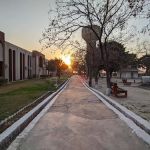 Riphah International University
Riphah International University
near Hajj Complexu060c I-14/3 I-14
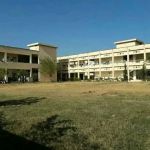 Islamabad Model College For Girls
Islamabad Model College For Girls
JX99+XCX
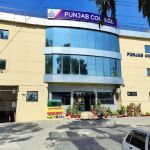 Punjab College of Commerce
Punjab College of Commerce
Plot No. 661u060c Main Peshawar Rd
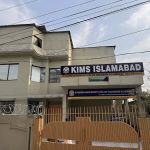 East-West Institute of Medical Sciences
East-West Institute of Medical Sciences
JXFG+H96
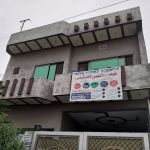 SUFFA science academy
SUFFA science academy
St 4
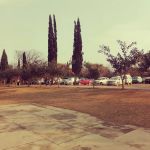 Army Public School EME Campus
Army Public School EME Campus
JXC5+5QQ
 NUST College of Electrical and Mechanical Engineering
NUST College of Electrical and Mechanical Engineering
Main Peshawar Rd
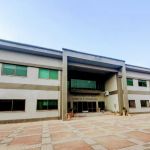 DBSH New Block
DBSH New Block
JXF5+2C
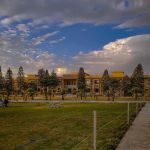 Electrical Department CEME
Electrical Department CEME
JXF5+748
 Pakistan Institute of Science & Technology
Pakistan Institute of Science & Technology
Lieutenant Mehmood Zafar Shaheed Rd
 College of E&ME, Gate No. 1
College of E&ME, Gate No. 1
JXF3+8XM
 Virtual University Exam Center Golrah Road, Islamabad
Virtual University Exam Center Golrah Road, Islamabad
Mor Frniture Markat
Department of Islamic Studies Reviews
More University
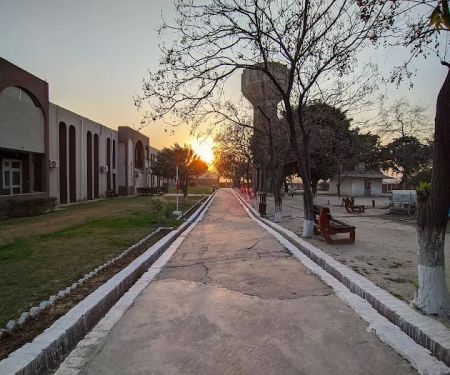 Riphah International University
4.0 (786 reviews)
Riphah International University
4.0 (786 reviews)
near Hajj Complexu060c I-14/3 I-14, Islamabad, 46000, Pakistan
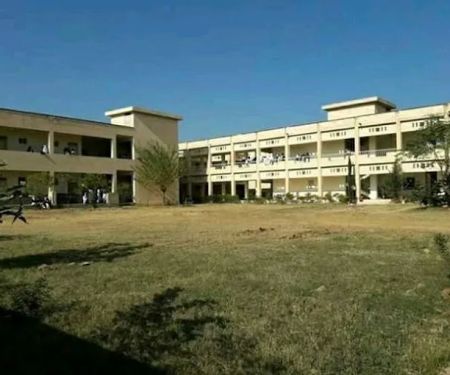 Islamabad Model College For Girls
3.0 (23 reviews)
Islamabad Model College For Girls
3.0 (23 reviews)
JX99+XCX, I-14/3 I-14, Islamabad, Pakistan
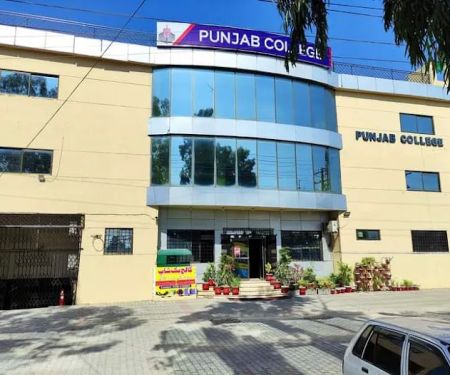 Punjab College of Commerce
4.0 (161 reviews)
Punjab College of Commerce
4.0 (161 reviews)
Plot No. 661u060c Main Peshawar Rd, near Golra moru060c u0646u0635u06ccu0631u0622u0628u0627u062f u0627u06ccu0686 - u06f1u06f3u060c u0631u0627u0648u0644u067eu0646u0688u06ccu060c Pakistan
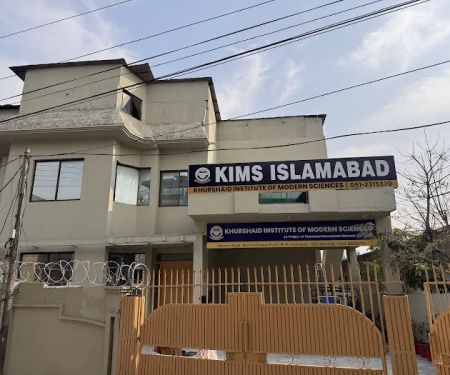 East-West Institute of Medical Sciences
5.0 (2 reviews)
East-West Institute of Medical Sciences
5.0 (2 reviews)
JXFG+H96, Street Number 25, Naseerabad Rawalpindi, Pakistan
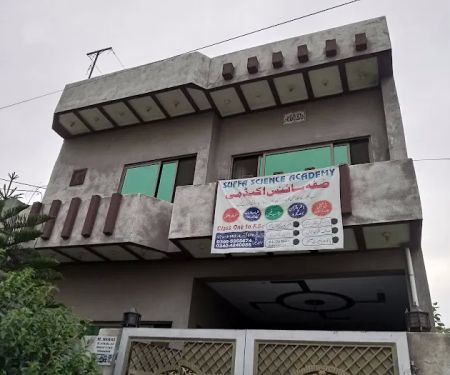 SUFFA science academy
5.0 (4 reviews)
SUFFA science academy
5.0 (4 reviews)
St 4, I-14/2 I-14, Islamabad, Pakistan
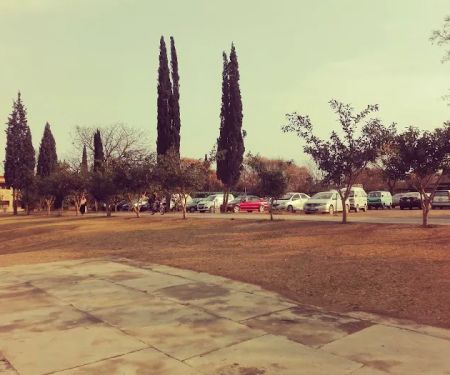 Army Public School EME Campus
4.0 (108 reviews)
Army Public School EME Campus
4.0 (108 reviews)
JXC5+5QQ, Rawalpindi, Pakistan
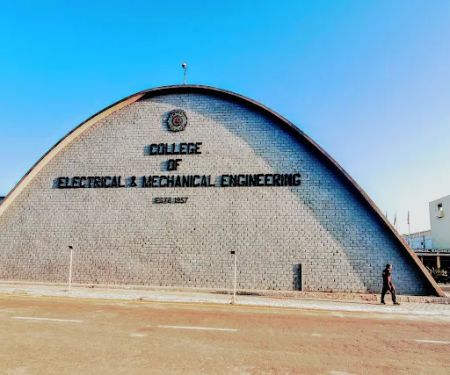 NUST College of Electrical and Mechanical Engineering
4.0 (854 reviews)
NUST College of Electrical and Mechanical Engineering
4.0 (854 reviews)
Main Peshawar Rd, adjacent Daewoo Terminal, Rawalpindi, Pakistan
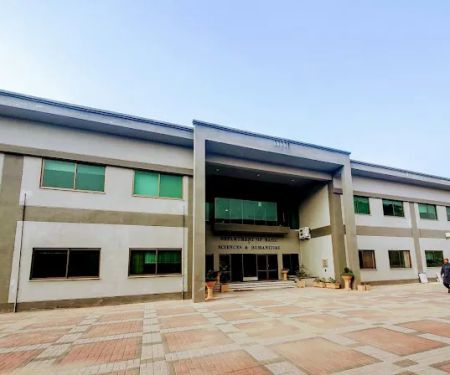 DBSH New Block
0.0 (0 reviews)
DBSH New Block
0.0 (0 reviews)
JXF5+2C, Rawalpindi, Pakistan
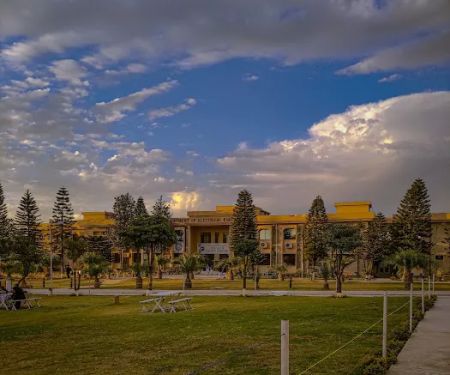 Electrical Department CEME
3.0 (17 reviews)
Electrical Department CEME
3.0 (17 reviews)
JXF5+748, Islamabad, Pakistan
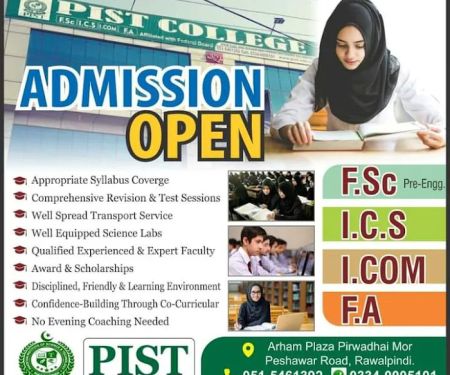 Pakistan Institute of Science & Technology
4.0 (47 reviews)
Pakistan Institute of Science & Technology
4.0 (47 reviews)
Lieutenant Mehmood Zafar Shaheed Rd, Rawalpindi, 46000, Pakistan
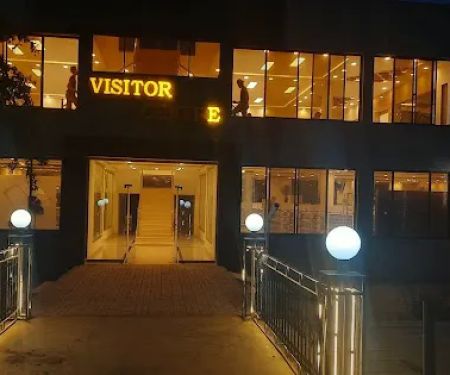 College of E&ME, Gate No. 1
4.0 (103 reviews)
College of E&ME, Gate No. 1
4.0 (103 reviews)
JXF3+8XM, Rawalpindi, Pakistan
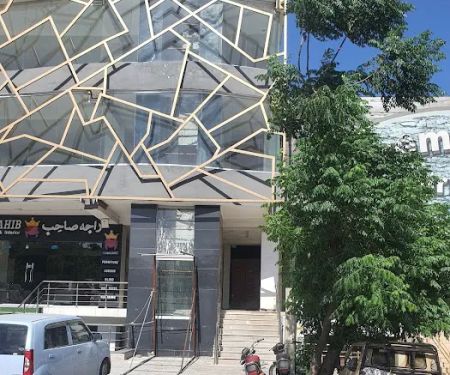 Virtual University Exam Center Golrah Road, Islamabad
0.0 (0 reviews)
Virtual University Exam Center Golrah Road, Islamabad
0.0 (0 reviews)
Mor Frniture Markat, Main Gate Golra Rd, near CMT SD, H-13, Islamabad, 46000, Pakistan
Categories
Popular
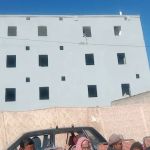 Bashir Institute of Health Sciences Islamabad4.0 (32 reviews)
Bashir Institute of Health Sciences Islamabad4.0 (32 reviews) Punjab College Malakwal Campus4.0 (19 reviews)
Punjab College Malakwal Campus4.0 (19 reviews) Govt Primary School (Boys), GORALA0.0 (0 reviews)
Govt Primary School (Boys), GORALA0.0 (0 reviews)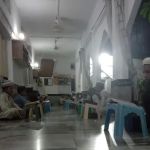 Darul Ulom Hanfia3.0 (5 reviews)
Darul Ulom Hanfia3.0 (5 reviews)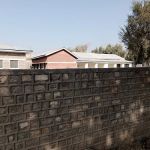 Gov't Primary School, Tangi0.0 (0 reviews)
Gov't Primary School, Tangi0.0 (0 reviews)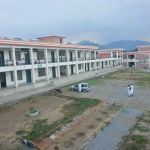 Examinition Hall Dargai College5.0 (1 reviews)
Examinition Hall Dargai College5.0 (1 reviews)Trending Blog Posts
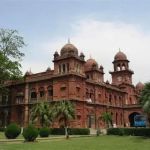 Most In-Demand Degrees in Pakistan 2025 – Top Fields for the Future
Most In-Demand Degrees in Pakistan 2025 – Top Fields for the Future Most In-Demand Degrees in Pakistan – What to Study in 2025 for a Future-Proof Career
Most In-Demand Degrees in Pakistan – What to Study in 2025 for a Future-Proof Career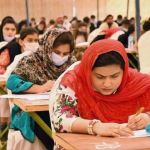 CSS 2025 Registration Deadline Announced by FPSC – Important Information for Aspirants
CSS 2025 Registration Deadline Announced by FPSC – Important Information for Aspirants Pakistan Education Census 2025 to Be Conducted in August: What to Expect
Pakistan Education Census 2025 to Be Conducted in August: What to Expect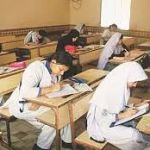 KP Inter Board Results to Be Announced District-Wise: What Students Need to Know
KP Inter Board Results to Be Announced District-Wise: What Students Need to Know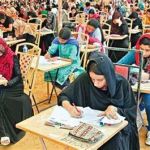 CSS 2025 Registration Deadline Announced by FPSC: Key Details and Preparation Tips
CSS 2025 Registration Deadline Announced by FPSC: Key Details and Preparation Tips 